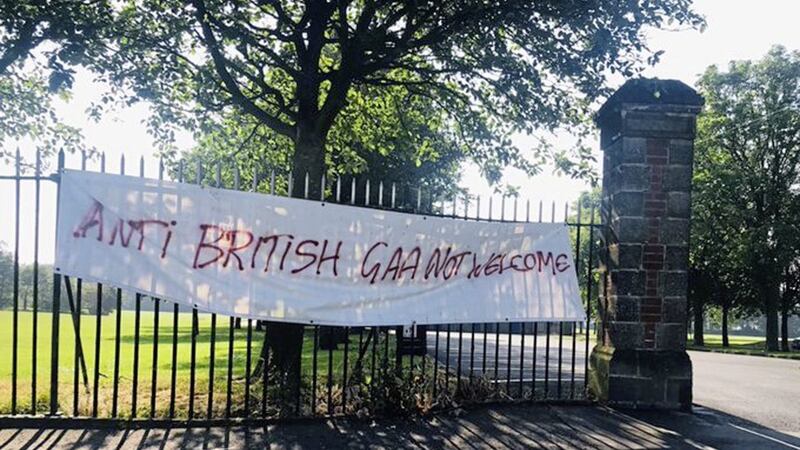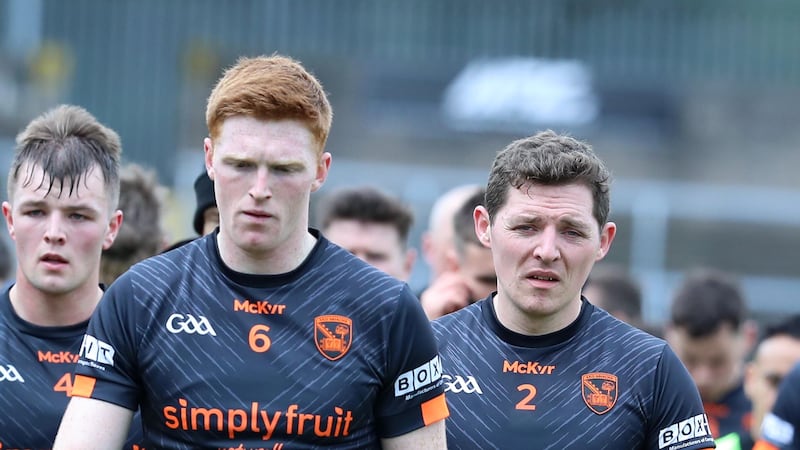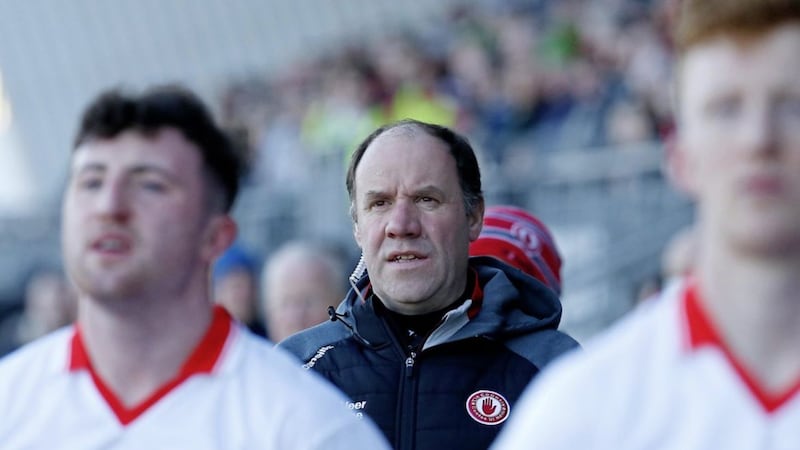FOR many people, the Grove Playing Fields between the Antrim Road and Shore Road in north Belfast have been a godsend during the pandemic.
Anyone who is familiar with this part of the city will know that within a stone’s throw in any direction there is social deprivation. They’ll also know that green space is a prize possession in this heavily built up part of the city.
During lockdown, my family have visited this beautiful park. Our children have raced their scooters along its winding paths, they’ve picked acorns, leaves, twigs and painted them at home.
The goalposts on the countless pitches were taken down some time ago, which has in many ways accentuated the vast expanse of green.
For many children – and adults – that green acreage has represented freedom over the past three months.
The park has been so many people’s place of mental and physical re-charge.
It’s filled with people of all walks of life and ethnicity. Last week, members of the Asian community - men, women and children - were engaged in a full blown cricket match.
At the top of the park, there were parents playing tennis with their kids. Other youngsters were learning how to ride bikes without stabilisers for the first time.
Since the easing of lockdown there have been more footballs, cricket balls and hurls around the playing fields.
However, for some people, hurls and O’Neill’s footballs are not wanted.
Even in a pandemic, there is still time for sectarian hatred.
Even before last Sunday morning’s anti-GAA banner that was pinned to the park’s entrance, sectarian graffiti (‘GAA = IRA’) appeared on the park’s pavilion weeks earlier and was quickly painted over by council staff.
It was probably because a couple of kids and their father, whom I know and was chatting to at the Grove Playing Fields, turned up with some hurls and sloithars to indulge in their passion.
On that very same sunny evening, my daughter wanted to know why two clearly drunk men were chasing another man, who was wearing a Celtic jersey, out of the park and telling him to ‘Go up to the Waterworks’ – another nearby park north of the city.
There is a small minority in the unionist community who don’t want the Grove Playing Fields to be a shared space. They want separate parks for Catholics and Protestants.
No-one can deny the gargantuan efforts made by local GAA clubs in north Belfast during the pandemic.
Those thousands of food parcels and medical supplies collected by GAA members, night and day, have been distributed to every nook and cranny north of the city regardless of creed, colour, nationality or political persuasion.
A generation on from the signing of the Good Friday Agreement our tolerance level for these shameful actions is far too high.
There is far too much tut-tutting and shaking of heads and far too much silence from unionist representatives.
How long does it take for a unionist councillor or politician to post a tweet to say the banner at the Grove Playing Fields was reprehensible?
How long would it take for an on-call press officer working the Sunday shift to cut and paste a two-line press statement, insisting that all cultures and traditions must be respected, but especially in shared spaces.
And especially during a pandemic when our anxieties and concerns are exactly the same regardless of your postal code.
When these things happen, it’s the silence that kills your spirit.
Just imagine if a nationalist and unionist politician stood shoulder to shoulder at Grove on Sunday morning and called out this sectarian behaviour.
Think of its impact. It would be a game-changer. It would strangle the opponents of respect and tolerance of oxygen.
Instead, working-class unionism is kept in a perpetual state of insecurity and fear of the ‘other side’.
They’re conditioned to be suspicious of a seven-year-old soloing a ball in a shared space or when they experience the thrill of stitched leather and ash colliding.
Sadly, the “fork in the road” is still some distance away - and the interfaces in north Belfast become more tense by the night.
Meanwhile, people absolve themselves of any sense of responsibility, oblivious to cause-and-effect.
We didn’t start the fire amid the shattering of car windows and worse. So residents on both sides of the divide live in fear.
Through the sheer awfulness of the last three months, the pandemic was a rare opportunity for meaningful reconciliation.
On May 31, East Belfast GAC was born - a venture that is dedicated to breaking down religious and political barriers through the playing of Gaelic Games.
Proud unionist and Irish speaker Linda Irvine was announced as the club’s inaugural president.
East Belfast GAC should be celebrated as one of the most encouraging shafts of light that has emerged from the darkness of the pandemic.
Undoubtedly, the club faces major challenges along the road – not just in predominantly unionist districts east of the city, but in GAA heartlands too.
If East Belfast GAC manages to take flight, the GAA must reach out and extend itself in an imaginative way.
But the starting point is the absolute need for political unionism to turn up the volume to condemn those who deem kids playing Gaelic Games in a shared space a threat.
For a million reasons, the radio silence has to end.








